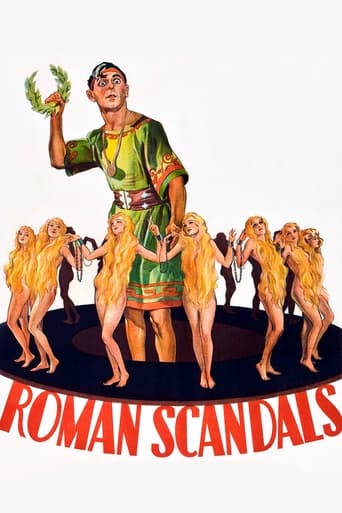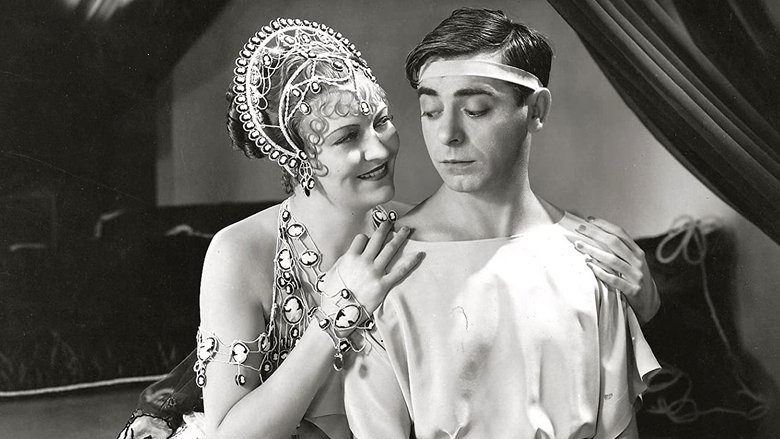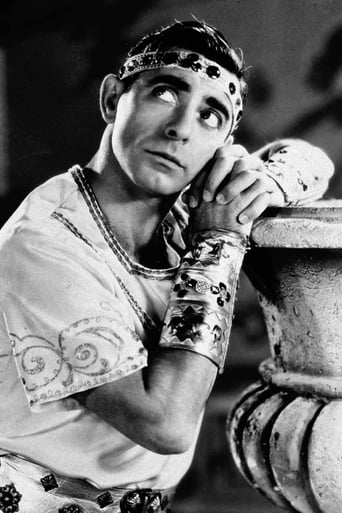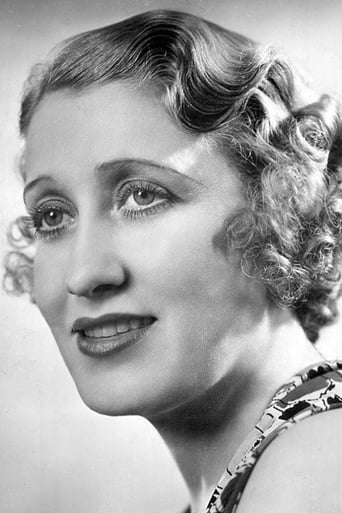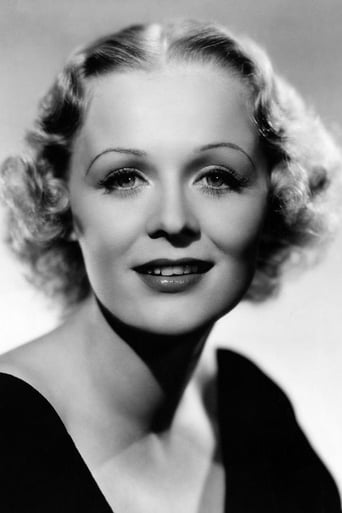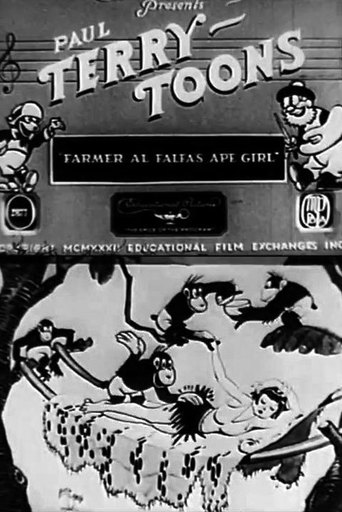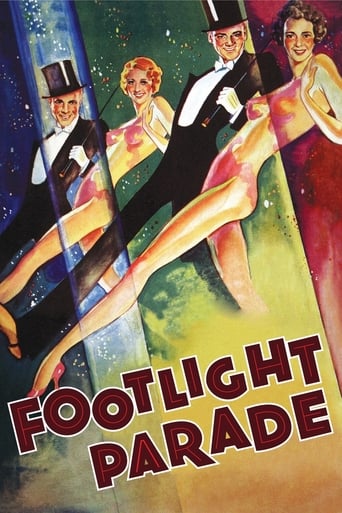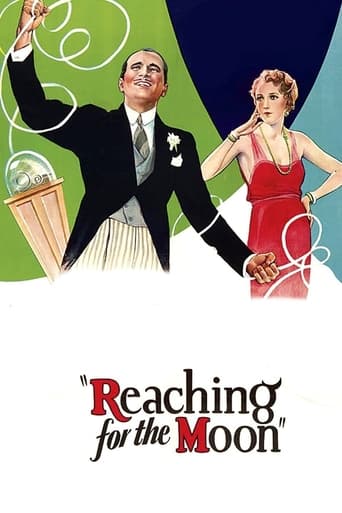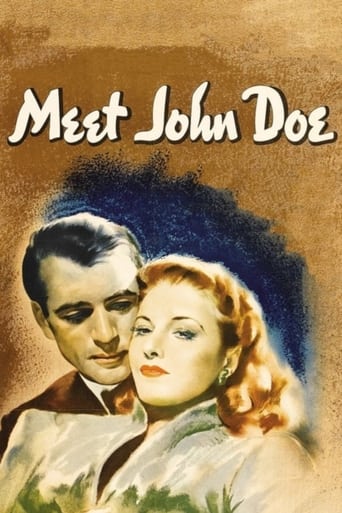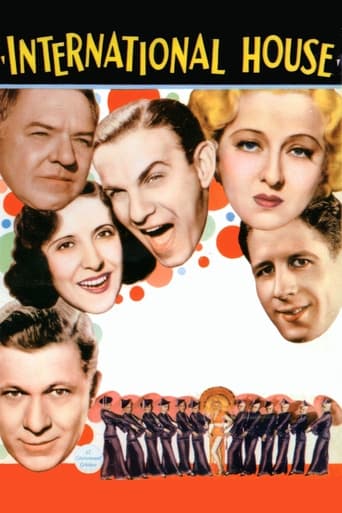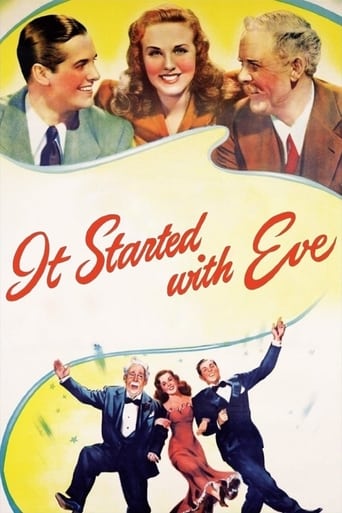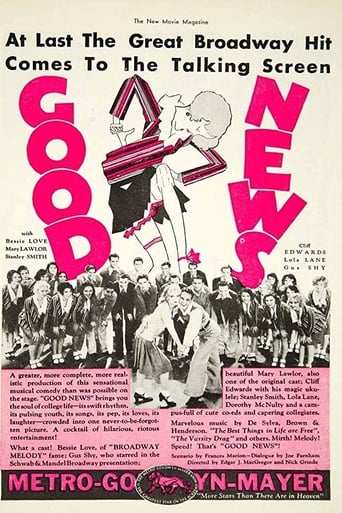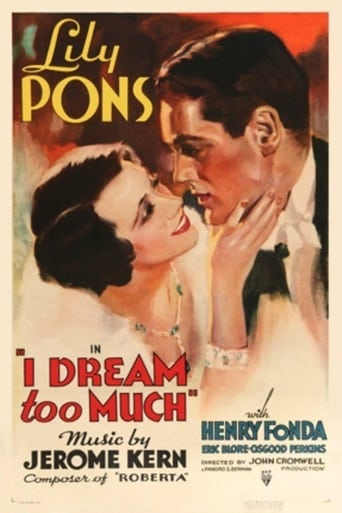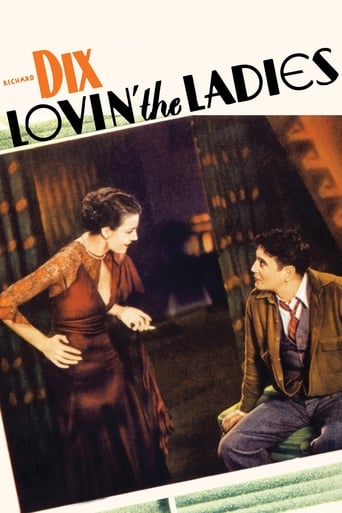Roman Scandals (1933)
A kind-hearted young man is thrown out of his corrupt home town of West Rome, Oklahoma. He falls asleep and dreams that he is back in the days of olden Rome, where he gets mixed up with court intrigue and a murder plot against the Emperor.
Watch Trailer
Cast


Similar titles
Reviews
WARNING: A blackface musical number is included. If sensitive to such, best not to view this film, or close your eyes during this portion.The 4th in a series of Eddie Cantor musicomedies produced by Sam Goldwyn from 1930-36, contains my favorite song and musical production in this series ,in "Build a Little House". Within the context of a community having been just evicted from their homes, the idea of setting up the contents of their homes on their lawns and sidewalks is rather bizarre, which adds to the attraction They are expressing their defiance against Mr. Cooper: the 'town boss', who apparently owns their former homes or the mortgages on them, and who wants to build a new jail in place of their homes. At present, Mr. Cooper is leading the dedication ceremony for a Museum of Roman Art, which consists mainly of statues of ancient Roman big wigs and gods, which he previously donated land for. Somehow, Eddie got into the museum ahead of this ceremony, and hung his clothes on various statues, while sleeping. This, along with Eddie's constant correction of his identification of the beings represented by the statues much annoys Mr. Cooper. Eddie complains that he promotes destroying the homes of law-abiding citizens in order to build houses for statues and criminals. The idea of unjust, as well as justified, evictions was especially relevant to Depression audiences. For his embarrassments of Mr. Cooper and the rest of the town big wigs, Eddie is banished from his town of West Rome. During his walk out of town, he imagines he's back in ancient Rome, where hopefully there is less political corruption than in Depression America. However, Eddie finds that corruption and exploitation of the powerless by the powerful was just as pervasive in ancient Rome as in West Rome. He, himself, is sold as a slave, fortunately , to a kind-hearted aristocrat, who sets him free. However, he witnesses the selling of naked beautiful young women(Goldwyn Girls) as slaves. He witnesses the over taxation of the populace to finance construction of new monuments and other public buildings, while the excess is used to finance the exorbitant living expenses of the emperor and his retinue. Eddie is thrown in prison with a captured princess(Sylvia), from which he escapes by having his guards, and even the emperor, inhale a laughing gas from his magic vase. The emperor comes up with a sneaky idea to get rid of Eddie. He orders him to be his new wine and food taster, knowing that the lifespan of recent food tasters has been very short. Seems the empress is determined to hasten the death of her husband by feeding him poisoned food and wine. After the royal crocodile dies from eating poisoned nightingale, the emperor orders Eddie thrown to the lions. However, Eddie escapes and takes over a chariot, with Josephus and Princess Sylvia in a chariot ahead of him, as they are chased by palace guards. As Eddie's chariot is wrecked, he awakens to find himself back on the edge of West Rome. He remembers a check he found on the street from Mr. Cooper to the police chief, for $5000. He thinks this is proof of bribery by Mr. Cooper. Apparently, it stands up in court, and the participants in the bribery are sent to jail. His friends now can move back into their homes, as Eddie reprises "Build a Little Home".I have a problem with the whole business of Mr. Cooper's corruption and Eddie's discovery of it. The nature of Mr. Cooper's corruption is unclear to me. How does he benefit from donating property he owns toward construction of a jail? Tax breaks? Construction profits? Eddie's finding of the $5000. bribery check dropped on the street is highly unlikely, and how could he prove this check was for bribery? Harry Warren and Al Dubin were borrowed from Warner to composed the new songs. It was found that they worked well with choreographer Busby Berkeley. This was Busby's last film for Goldwyn, he moving to Warner where he would again be teamed with Warren and Dubin for a series of very popular musicomedies. Then, both moved to 20th Century Fox, where they collaborated in "The Gang's All Here", with Mack Gordon in place of Al Dubin.Besides the "Build a Little Home" production, in another big production, Eddie puts on blackface and sings "Keep Young and Beautiful" In one portion, a circle of Goldwyn Girls are nude, except for wigs of extra long hair that cover their breasts and privates. This was the year before the new Motion Picture Code went into full effect, when I'm sure, this would not be allowed.
I recently read an account of the creation of Roman Scandals and the miracle is the film got made at all. A whole lot of creative minds butted creative heads.Sam Goldwyn had it in mind to make a film version of Androcles and the Lion starring Eddie Cantor and I think Cantor would have been perfect in the title role. Unfortunately George Bernard Shaw thought there would be more Cantor than Shaw in the finished product and he nixed that idea with Goldwyn quick.The idea of a story in ancient Rome had really taken hold with Goldwyn so he then hired George S. Kaufman and Robert Sherwood to write a screenplay. They did come up with the story outline you see on films, but got into problems with Cantor who insisted he wanted the lead role more personalized along with the gags that went with it. Kaufman and Sherwood quit on Goldwyn.Sam got a few more writers and gave Cantor more creative input into the film and the result is Roman Scandals. Admittedly Roman Scandals is one of the best showcases for the talents of Eddie Cantor.Eddie plays one of his usual meek little schnooks who turns the tables on those oppressing him. He's the curator of a small museum in West Rome, Oklahoma and uncovers evidence of corruption by the local bigwigs who give him the bum's rush out of town. He soon finds himself walking on a road leading out of ancient Rome and gets involved in the political situation there.Co-starring with Cantor are Gloria Stuart, David Manners, and as the Emperor Edward Arnold who is playing one of his early villains. Cantor uses both Arnold and his chief henchmen Alan Mowbray to great effect in several gags. My two favorite scenes are his avoiding the Emperor's poisoned food by feeding it to the royal crocodile and Cantor being sold at the slave market with the bidding done by people who want him for all kinds of purposes.Ruth Etting who co-starred on Broadway with Cantor in Whoopee has a part and a real good torch song number No More Love. Busby Berkeley gave it and other songs sung by Cantor a big production number. Etting of course was the subject of bio film Love Me or Leave Me with Doris Day playing her. Roman Scandals is your opportunity to see the real deal and what a talent she was.Gloria Stuart who was on loan from Universal could not believe the lavishness of a Sam Goldwyn film, she was used to more cost conscious operations at her home studio. But if you hire Busby Berkeley lavish comes with the territory. Two of Cantor's numbers Build a Little Home and Keep Young and Beautiful got the lavish treatment and they were good. Eddie Cantor an entertainer of amazing talent should be seen and studied today. I can't think of anything better to start with than Roman Scandals.
Dates badly and is generally a snore; however the musical numbers directed by Busby Berkeley liven things up, and there is the unusual appearance of singer Ruth Etting who was quite famous at the time. Gregg Toland's very early B&W photography is amazing, and could be more properly called "grey-scale"; what he did was very difficult to pull off given the crude state of the technology of the time.
ROMAN SCANDALS (Samuel Goldwyn, 1933), directed by Frank Tuttle, is the fourth of the annual Eddie Cantor/Samuel Goldwyn musicals of the Depression thirties, and one of their comedic best. Inspired by the recent success to Will Rogers's version to Mark Twain's A CONNECTICUT YANKEE (Fox, 1931), this adaptation relies not on classic literature, but on its own original screenplay and comic supplements, compliments of George S. Kaufman and Robert E. Sherwood.In the basic storyline, Eddie Cantor stars as Eddie (no last name given), a good natured character of West Rome, Oklahoma, liked by so many. When Warren Finley Cooper (Willard Robertson), a corrupt politician, evicts a group of citizens from their homes in favor of building a jail, Eddie talks out of turn is forced to leave town. After being escorted across the border, Eddie, who happens to be an enthusiast about ancient Roman history, falls asleep on the side of the road and dreams himself back to the real Rome. While in ancient Rome, he encounters corrupt politicians headed the evil Emperor Valerius (Edward Arnold), and finds himself sold as a slave to Josephus (David Manners), who turns out he's rather have Eddie as a friend than a slave. On the romantic side, Josephus falls in love with the beautiful Princess Sylvia (Gloria Stuart), who becomes prisoner to the Emperor Valerius. Valerius has a wife, Agrippa (Verree Teasdale), who pleasures herself into poisoning her husband's food in hope to someday become a Merry Widow, but the Emperor is ahead of the game by hiring taste testers who drop dead after eating an unhealthy meal. Eddie is later hired for the job, but it would be more worthy for him to go on a starvation diet instead. After about an hour or so of ancient Roman dreams, the story reaches its climax with a hilarious chariot chase sequence.Also seen in Eddie's dream is legendary torch singer Ruth Etting as Olga. In spite of Etting's name billed second in the opening credits,her performance is on a limited scale, highlighted mostly by a song rendition at an auction gallery of slave girls. Aside from Dorothy's Technicolored dream in THE WIZARD OF OZ (MGM, 1939), Eddie's dream not only remains in black and white, but becomes a lavish scale spectacle with high comedy score composed by Harry Warren and Al Dubin (on loan from Warner Brothers), featuring: "Build a Little Home" (the score that opens and closes the movie/ as sung by Eddie Cantor); "No More Love" (sung by Ruth Etting, danced by The Goldwyn Girls, solo dance by Grace Poggi); "Keep Young and Beautiful," "Put a Tax on Love" and a reprise of "Build a Little Home" (all sung by Cantor).With a large cast, only a few are noted in the opening credits. Aside from Alan Mowbray and Lee Kohlmar as the surviving names on the list, the ones receiving no screen credit are Jane Darwell as the beauty saloon manager in Ancient Rome; Charles C. Wilson as a police chief in modern Rome; Stanley Fields as the slave auctioneer; with Paul Porcasi and Harry Holman. Look for midget Billy Barty appearing briefly as the shrunken Eddie in one scene. Among the Goldwyn Girls, there are many, but the one of main interest today is Lucille Ball, in her movie debut. She can be spotted several times throughout the story. While the entire movie plays mostly for laughs, the "No More Love" production number, directed by Busby Berkeley, is actually the only serious moment in the story. For Berkeley's choreography, in this production, they're not up to his usual standards. Only "No More Love" has the Berkeley trademark, facial closeups of dancing slave beauties, though nothing really spectacular, with the exception of the lavish sets and costumes that make this look more like a Cecil B. DeMille epic.ROMAN SCANDALS at 93 minutes presents Eddie Cantor at his prime, risqué dialog, slapstick comedy, vaudeville-type pratfalls, and a dream sequence only Hollywood could dream up. A forerunner to Zero Mostel's A FUNNY THING HAPPENED ON THE WAY TO THE FORUM (1966), along with a run-on gag with a plate of poisoned food that echoes the Danny Kaye comedy from THE COURT JESTER (1955).During the early years of cable television, this, along with other Cantor/Goldwyn collaborations, were featured on the Nostalgia Channel, Turner Network Television (TNT) and last seen on American Movie Classics during the 1993-94 season. Long unseen on any television in recent years, ROMAN SCANDALS has also become one of the few surviving Cantor/Goldwyn musicals of the 1930s to remain available on video cassette.ROMAN SCANDALS may be of sole interest today mainly for I LOVE LUCY fans to try and spot a very young Lucille Ball as one of the extras, but if not for that, watch it for its broad comedy, which has been imitated many times in later years by future film and TV comics, and may continue to do so as long as ROMAN SCANDALS remains available for viewing and film study. (***)

